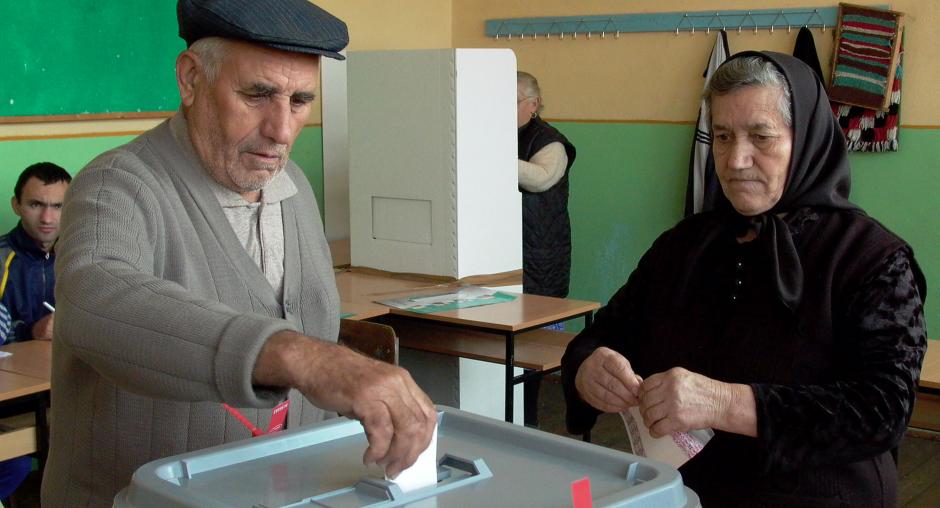Newsroom
OSCE/ODIHR to monitor early Macedonian presidential election
WARSAW/SKOPJE 23 March 2004

After the death of President Boris Trajkovski, the former Yugoslav Republic of Macedonia will hold early presidential elections on 14 April. (Lubomir Kotek/OSCE) Photo details
WARSAW/SKOPJE, 23 March 2004 - The OSCE's Office for Democratic Institutions and Human Rights (ODIHR) has deployed an Election Observation Mission to monitor the early presidential election in the former Yugoslav Republic of Macedonia on 14 April, caused by the death of President Boris Trajkovski on 26 February.
"It is important that this presidential election serve as an opportunity to take this country another step forward, and away from troubles of the past," said Ambassador Friedrich Bauer of Austria, who heads the Election Observation Mission (EOM). "I can think of no better way to honour the work and memory of its late president."
A core team of 10 international election experts will be based at the EOM's head office in Skopje, with an additional 17 long-term observers at regional centres throughout the country. The Observation Mission, drawn from 16 OSCE participating States, will closely monitor and analyze the entire electoral process, including campaigning, the work of the election administration, the media, and the legal framework, as well as the complaints and appeals procedures.
The EOM is being deployed in response to an invitation from the Macedonian authorities. The electoral process will be assessed according to OSCE commitments as well as national legislation.
In addition to the experts team, the ODIHR has requested OSCE participating States to second up to 250 short-term observers who will be deployed throughout the country shortly before election day to observe the voting, counting, and tabulation of results.
On the day after the election, the Observation Mission will issue a statement of preliminary findings and conclusions. A comprehensive final report will be released about one month after the completion of the electoral process.
The Election Observation Mission will operate entirely separately from the OSCE Spillover Monitor Mission to Skopje.
"It is important that this presidential election serve as an opportunity to take this country another step forward, and away from troubles of the past," said Ambassador Friedrich Bauer of Austria, who heads the Election Observation Mission (EOM). "I can think of no better way to honour the work and memory of its late president."
A core team of 10 international election experts will be based at the EOM's head office in Skopje, with an additional 17 long-term observers at regional centres throughout the country. The Observation Mission, drawn from 16 OSCE participating States, will closely monitor and analyze the entire electoral process, including campaigning, the work of the election administration, the media, and the legal framework, as well as the complaints and appeals procedures.
The EOM is being deployed in response to an invitation from the Macedonian authorities. The electoral process will be assessed according to OSCE commitments as well as national legislation.
In addition to the experts team, the ODIHR has requested OSCE participating States to second up to 250 short-term observers who will be deployed throughout the country shortly before election day to observe the voting, counting, and tabulation of results.
On the day after the election, the Observation Mission will issue a statement of preliminary findings and conclusions. A comprehensive final report will be released about one month after the completion of the electoral process.
The Election Observation Mission will operate entirely separately from the OSCE Spillover Monitor Mission to Skopje.
